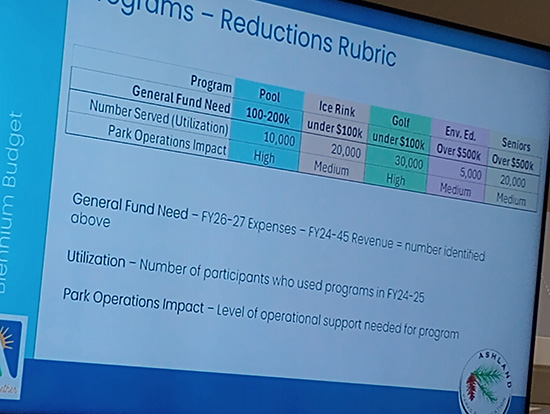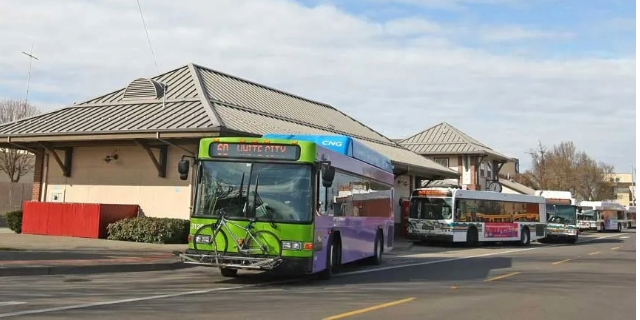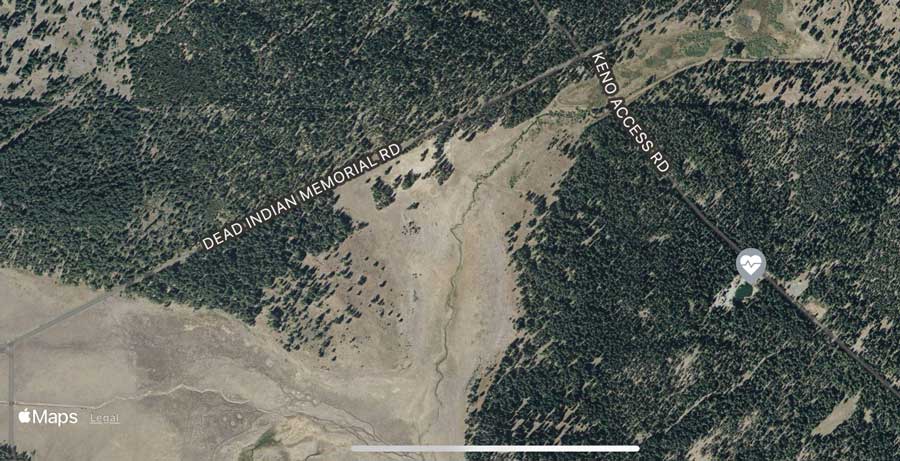Ashland Parks Commission proposes $6.50 utility fee to keep services close to current levels
Published 10:58 am Friday, May 2, 2025

- Ashland Parks used a rubric to explain why certain programs were targeted for potential budget cuts. Ashland.news photo by Morgan Rothborne
The Ashland Parks & Recreation Commission voted at a special meeting Monday to recommend the city impose a monthly utility bill fee and raise various user fees to prevent large cuts to parks programs.
A $6.50-per-month parks fee for utility bills — smaller than a proposed $9 fee the City Council narrowly rejected in April — was recommended to the City Council through a unanimous vote by commissioners, but not without discussion and some trepidation. If passed, the fee would go into effect in the budget biennium that begins July 1.
Parks Director Rocky Houston said the department was originally given the direction to hold its budget at the current biennial level pending further review of the general fund. But around “spring break time,” he said, departments drawing from the general fund were given the direction of 5% cuts. Parks is now attempting to cut $1.4 million.
“The cost of personnel, materials and services, is exceeding at a rate much higher than our resources,” he said.
Every program is loved
Choosing where to make cuts was a painful process, he said, as every program is loved by those who use it. Parks staff attempted to go through rubrics to target the spending reductions. Nearly every program is facing some cuts, Houston said
Potential cuts include reductions in parks bathrooms, reduced hours at the senior center, not building East Main Park and reducing hours at the Daniel Meyer Pool, as reported by Ashland.news.
Commissioner Dan Weiner pressed for more refined data to explain which programs were targeted for cuts rather than the chart presented, which divided programs into categories such as “high” or “medium” in terms of their impact on the parks budget.
Houston said that parks staffers may work in multiple facilities or programs. And he said the city does not track personnel time and location at a granular enough level to determine exactly how much time is required to maintain or operate particular facilities and programs.
Houston apologized for some “typos and other errors” in the discussion presented on April 15. “Through this budgeting process, I’ve presented numbers, and those numbers are changing because that’s just part of the budgeting process,” he said.
Better numbers than expected
“The good news is, in revision of these numbers it takes less of a fee to continue to move forward with program details than we thought,” he said.
Parks & Recreation commissioners unanimously recommended a $9 fee to prevent budget cuts at its April 9 meeting, as reported by Ashland.news. The City Council rejected that recommendation with a split vote at its April 15 meeting.
Commissioner Rick Landt asked if APRD could escape without cuts if the utility fee were approved. Houston replied, “Sort of.”
Heavy reductions to programs could be avoided, but the budget would still need to be held at the current biennium’s level and institute some “efficiencies and reductions,” he said.
Commissioner Justin Adams said that he runs through Lithia Park very early almost every morning and it is rare for him not to see Houston’s car in the parking lot. The director is working hard to handle the situation, and the situation is the problem, he said.
Adams said that as chief medical officer for La Clinica, he has sat in on budget meetings for that organization, which has hundreds of staff and a multimillion-dollar budget. He said that though it may be out of his purview as a parks commissioner, a 13% increase in the cost of employee benefits shouldn’t be a surprise. Increases of this kind have been common for a couple decades, he said.
Adams: Numbers seem off
“There’s a part of me that has some experience in budget that says, ‘What’s going on here?’” he said.
Large cuts to staff and a budget shortfall of the kind facing Parks & Recreation seem to happen when “the numbers don’t add up quite right,” he said. He said he was unsure where the error was coming from and that he was sure city staff were working to correct the situation. But Adams also questioned why certain programs were targeted in the proposed cuts.
“Choosing the areas for those cuts and programs that not only impact kids and seniors that actually have pretty good revenue generation relative to the cost — like the pool and the ice rink and the community garden — it doesn’t really make sense to me,” he said.
Weiner said he voted in April for the $9 fee was based on the information then available. He made a motion for a fee for the current biennium to protect programs.
“This is a band-aid. Band-aids aren’t supposed to stay on wounds forever. … They’re part-time things until you can solve whatever the problem is,” he said.
The motion failed after a statement from Commissioner Rick Landt swayed all but Weiner and Commissioner Mike Gardiner that the motion could limit the City Council’s flexibility and potential solutions.
Fee for use of fields
After additional discussion, the commission voted unanimously to support a $6.50 utility fee to be considered by City Council for final approval. Commissioners also voted unanimously to approve a raise in fees for the use of various facilities. The fee for athletic field use changed to a $5 hourly rate, down from the $35-an-hour rate among the recommendations in meeting materials.
Numerous Ashland residents took turns speaking in support of community gardens and against raising fees for use of athletic fields.
Nancy Nelson said she spent time on a waitlist before getting a raised bed in the Ashland Creek Community Garden.
‘Community gardens need to remain’
“It has contributed to my groceries, and as a senior citizen I have already paid forward for a year for that raised bed. We have already done the soil amendments and we have purchased our plants and we are on hold and we don’t know if the community gardens will exist,” she said.
Nelson questioned why the city of Ashland has a golf course and suggested its privatization. She said the city’s pool could potentially be privatized as well, but the “community gardens need to remain with the community.”
Several community garden users questioned losing access to the gardens when so many donate volunteer hours to maintain the gardens and clear the areas of weeds. Without their labor the gardens would become “an eyesore, and a fire hazard,” one gardener said. The gardens produce thousands of pounds of food given to friends, neighbors and the food bank, Barbara Shaff said.
Sharon Dohrmann said the loss of city’s splash pad, ice rink and pool would be detrimental for families.
“I say with all my heart, ‘Please don’t,’” she said.
It’s already difficult to keep kids happy in Ashland, and the proposed cuts threaten to affect the families living in town and prevent others from wanting to move here, she said. The school district’s enrollment is down, restaurants and businesses are struggling, she added.
“If we want Ashland to maintain economic viability we need families to move here,” she said.
People help with upkeep
Deanna Oakley, board president of Ashland Youth Baseball, said that she and her husband — like many others who spoke at the meeting — had donated hours of their own time and resources to help maintain fields and facilities. A higher cost to use them would be passed on to families involved in sports programs.
“This is going to be an absolutely detrimental decision for these families. … If we needed to we would go ahead and move all of our programs to Medford,” Oakley said.
Anne Gaffney said while she recognized budget decisions were not easy, shifting dollars around didn’t appear to be solving the problem.
“I believe in this community. I believe we can come up with solutions. We just need to work together to do it,” she said.
What cuts are ultimately made to Parks & Recreation and the budget’s ultimate numbers will continue to change over the next 60 or so days, Houston said. The budget will be reviewed by the city’s Citizen Budget Committee as part of the city’s budget process.
Email Ashland.news reporter Morgan Rothborne at morganr@ashland.news. This story first appeared at Ashland.news.







